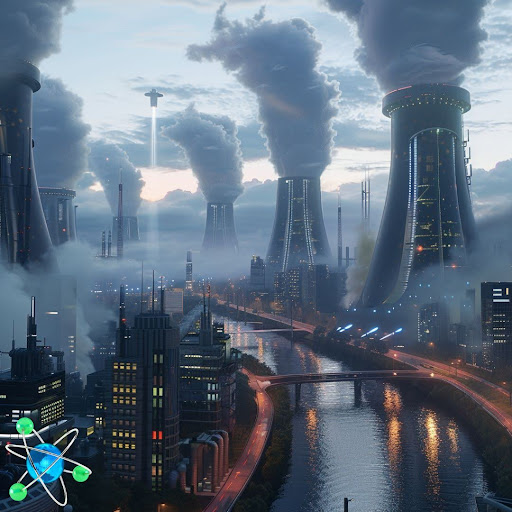
- The manifesto advocates for expanding the EU’s nuclear capacity from 100 GW to 150 GW by 2050 to align with global net-zero goals, emphasizing the pivotal role of nuclear energy in reducing carbon emissions and enhancing strategic autonomy.
- Key policy recommendations include equal treatment for all net-zero technologies, access to EU funds for nuclear projects, and support for innovative nuclear technologies, research, and workforce development.
- The document calls for collaborative efforts between European institutions, member states, and the nuclear community to implement these strategies and achieve a sustainable, low-carbon future.
The manifesto presents a compelling vision for the role of nuclear energy in achieving the EU’s net-zero goals and enhancing its strategic autonomy. Currently, the EU has approximately 100 GW of nuclear capacity, but the goal is to expand this to 150 GW by 2050, aligning with the Net Zero Nuclear initiative that aims to triple global nuclear capacity by the same year. This commitment has been recognized by the Nuclear Alliance of EU Member States, the European Commission, and the European Parliament. Notably, initiatives like the European Industrial Alliance for Small Modular Reactors (SMRs) and the adoption of the Own Initiative Report on SMRs underscore this support.
Nuclear energy is seen as pivotal for reducing carbon emissions and achieving a net-zero future. It plays a critical role in the electrification of Europe’s industry and enhances the EU’s strategic autonomy by reducing reliance on external energy sources. For the EU to fully leverage the potential of nuclear energy, the manifesto calls for several policy actions. It stresses the need for equal treatment of all net-zero technologies, including nuclear, and the implementation of consistent and coherent policies that facilitate the deployment of nuclear energy. Access to EU financial resources for nuclear projects is crucial, as is recognizing the nuclear fuel cycle as an enabling activity under the Sustainable Finance Taxonomy. Additionally, the manifesto highlights the importance of ensuring low-carbon technologies are not disadvantaged by taxation policies and enabling innovative nuclear technologies to access funding beyond the Euratom programme. Investment in nuclear research and the development of a skilled nuclear workforce is also deemed essential.
The manifesto emphasizes that overcoming the significant challenges ahead requires close collaboration between European institutions, EU Member States, and the nuclear community. The nuclear industry is fully committed to fulfilling its role in this transition. The document urges a shift from words to actions, believing that together, meaningful progress can be achieved.
Yves Desbazeille, the director general of Nucleareurope, emphasized the need for the next European Commission to treat nuclear energy on an equal footing with other fossil-free technologies. He expects future policy proposals to focus on broader goals such as decarbonization, competitiveness, and energy sovereignty, rather than on specific technologies.
Nuclear energy currently generates electricity in 14 out of the 27 EU Member States, providing 25% of Europe’s electricity and 50% of its low-carbon electricity. This manifesto serves as a robust blueprint for the future of nuclear energy in the EU, advocating for strategic policies and support to maximize its potential in the fight against climate change.

0 Comments